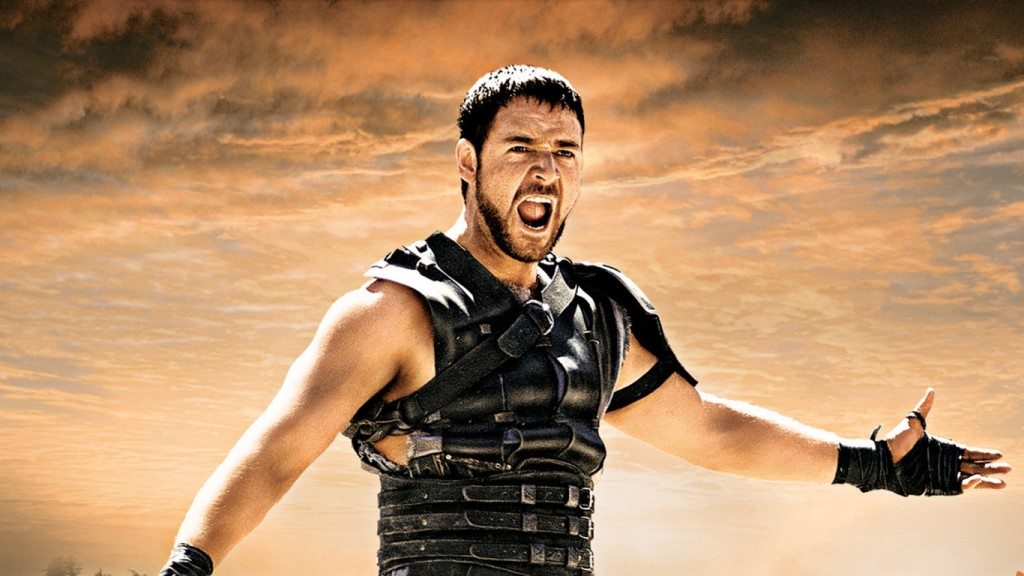“Life inspires art as much as art inspires life” are some of the truest words ever spoken. This is evident by the fact that so many masterpieces have been inspired by living beings rather than imagination. Mona Lisa, arguably the most popular work of art in history, is the portrait of the wife of a wealthy Florentine silk merchant. Cinema is no different. Many admirable films have drawn audiences through the words “inspired by true events” and have painted a true and realistic tableau of history. This isn’t a list of those films.
This, on the other hand, is the list of films which took “creative liberty” a bit too far and portrayed history with a pinch (or sometimes a handful) of salt. Some of these are good films, mind you. 4 Academy Award Winners for Best Picture feature in this list. But our focus is on the historical authenticity of the facts shown in the film rather than cinematic merit. Without further ado, here is the list of most inaccurate historical movies ever. Prepare to hear the proverbial glasses shatter. You can some of these historically inaccurate movies on Netflix, Hulu, or Amazon Prime.
Disclaimer: Major *my whole life was a lie* moments ahead. Proceed at your own risk.
10. Marie Antoinette (2006)
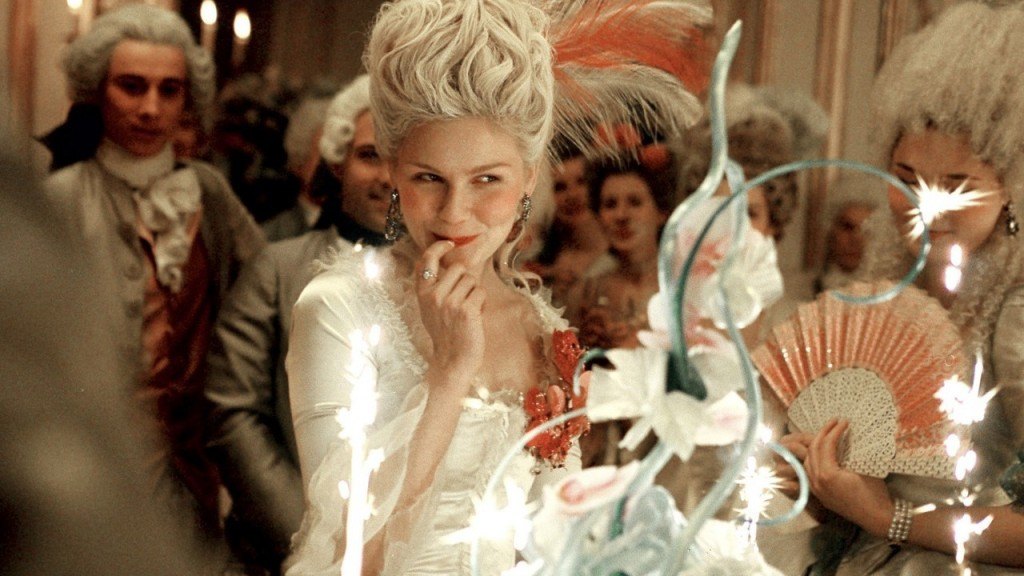
The first entry on this list is directed by Sofia Coppola and chronicles the life of the titular Queen in the years leading up to the French Revolution. Coppola herself has admitted that the film means to entertain rather than educate. It has a brash modern approach, right from the chic costumes (which garnered an Oscar nod) to its soundtrack filled with pop and punk numbers. But the film, in all its aesthetic beauty, commits a host of factual blunders, the biggest one being the characterisation of the Queen as a naive, innocent girl who loves shopping and parties, as if it were a Gossip Girl episode set in 18th Century France, which is far from the truth. It also botches up the timeline by showing the Queen’s successful childbirth much before it actually happened. Add the inclusion of her historically disputed sexual relation with Count Axel Fersen and the film ends up being an extravagant parody. It isn’t a history lesson, nor does it set out to be one.
Read More: Best Friendship Movies of All Time
9. Shakespeare in Love (1998)
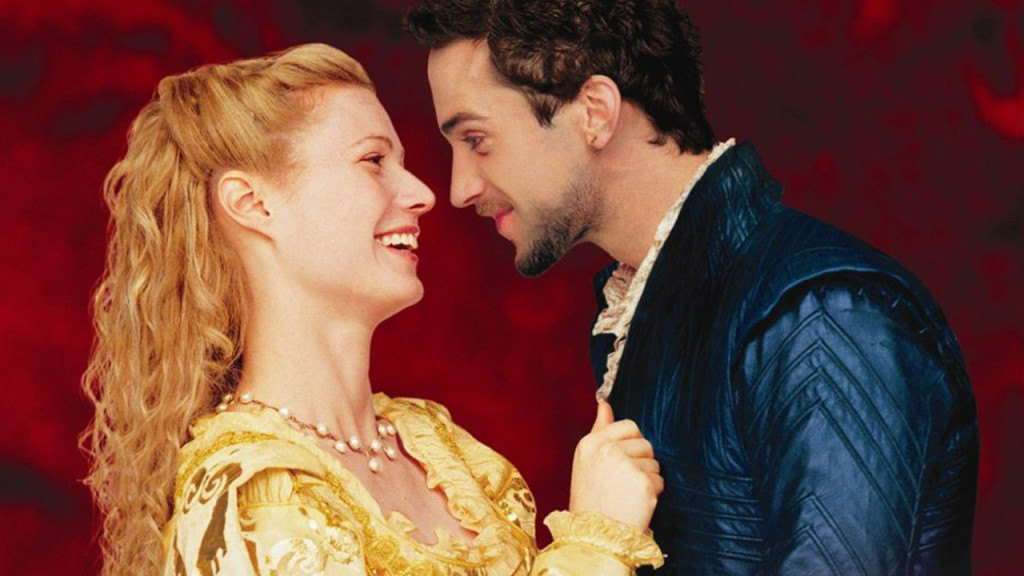
The romantic story of poor Will facing a writer’s block and then falling in love with the daughter of a wealthy merchant and thus getting inspired to write Romeo and Juliet, the most celebrated romance of all time, seems too good to be true. And it is. Shakespeare simply adapted an existing Italian verse tale called The Tragical History of Romeus and Juliet for theatre, thus ruling out the struggle to write it. The pivotal character of Viola de Lesseps for which Gwyneth Paltrow won an Oscar nod is a work of fiction too. Also, Elizabeth I, being the queen, never entered a public theatre, as she does in the film. To be fair, the creators of the film never claimed that the story was based on fact, but apologies to all the romantics who believed it was.
Read More: Best Childhood Movies of All Time
8. JFK (1991)
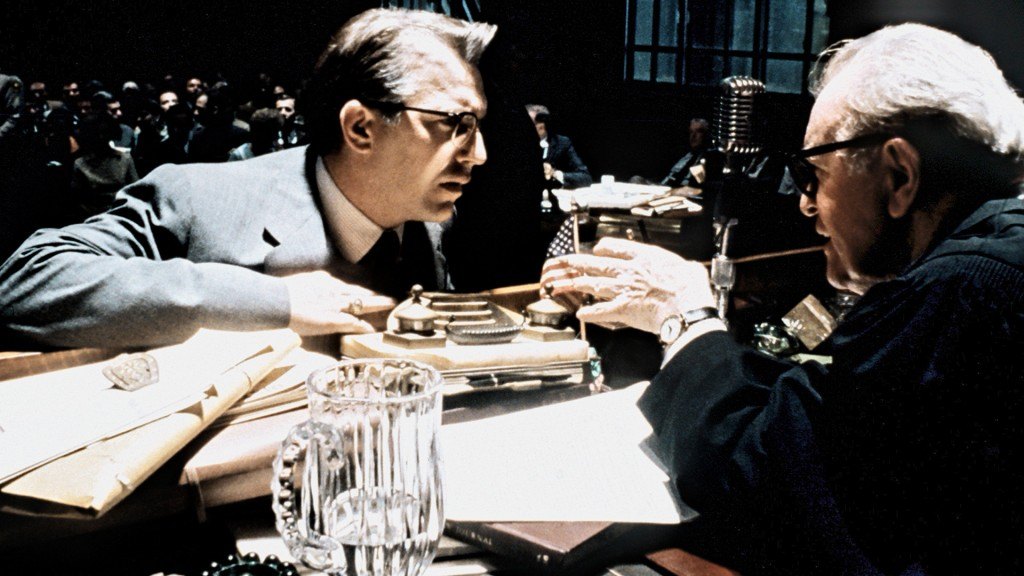
The phrase “Conspiracy Theory” became a buzzword in pop culture after the assassination of American President John F. Kennedy, and the resultant theories are still hotly debated upon more than 50 years later. Unlike our previous entry though, ‘JFK’ begins with a montage of archived and recreated footage, giving itself the feel of a documentary and leading the viewers to believe the facts stated. Then it proceeds to merge truth with a conspiracy theory which was actually based on a 1967 spoof called The Case of Jim Garrison, which was proven false in 1972. A slew of facts, the most prominent of which is the involvement of then Vice President Lyndon B. Johnson, who succeeded JFK as President, in the assassination, have little or no corroboratory evidence. The fact that the film earned $ 205 million at the box office shows that the audience bought the tale pretty well though!
Read More: Most Realistic Romantic Movies of All Time
7. The Patriot (2000)
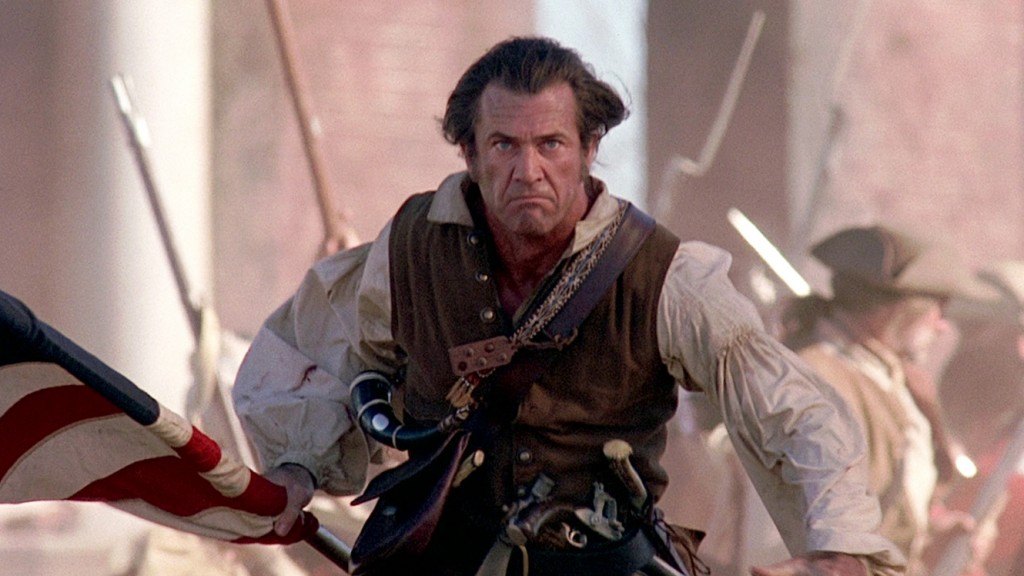
While ‘JFK’ is suggestive about its historical accuracy and never flat-out states its notions as facts, going for deduction instead, ‘The Patriot’, the story of a vengeful father swept into battle in the American Revolutionary War, boasts about historical authenticity and then slaps it soundly in the face. Producer Mark Gordon claimed that in making the film “the backdrop was serious history”, but while some events were loosely based on history,and others were adapted, such as the final battle in the film which combined elements of the two battles, namely Battle of Cowpens and Battle of Guilford Court House, most of the plot events in the film are pure fiction. Certain atrocities shown to have been committed by Brits were actually committed by Nazis during WW2! If you put historical accuracy aside though, the film is a passable attempt. It is still light years better than another one of Director Roland Emmerich’s films which ranks higher up on this list. You’ll see.
Read More: Best Mind Control Movies of All Time
6. Pearl Harbor (2001)
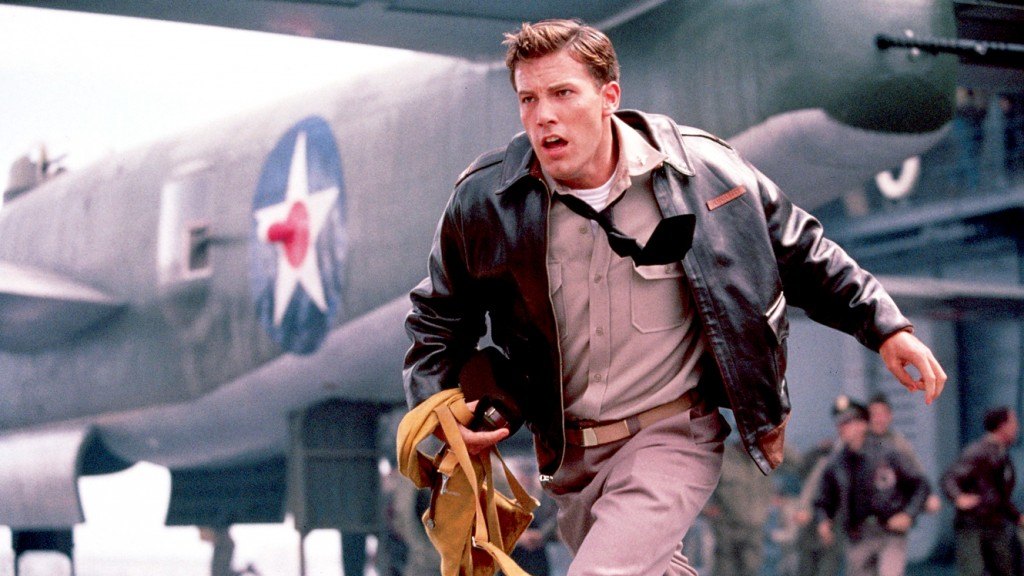
When the name Michael Bay appears next to the word Director, even expecting a plot seems like a stretch, let alone historical authenticity. ‘Pearl Harbor’ is one of the few Bay films to have a cohesive plotline, but it is rendered useless by a shocking number of factual lapses and unnecessary dramatisation. The film has more flaws than the average number of explosions in a Michael Bay effort. There are some humongous faults, like the inclusion of Ben Affleck’s character in the Eagle Squadron even though active-duty U.S. airmen were prohibited from joining the squadron and fake depiction of deliberate firing and murder of civilians among other atrocities by Japanese forces. There are small silly faults as well, like Marlbro Light cigarettes in a sailor’s pockets (these weren’t introduced till 1972) and Japanese planes being painted green instead of the actual light grey/white because in Bay’s own wise words “They looked good and it helped audiences to differentiate between the good guys and the bad guys”. I rest my case.
Read More: Best Single Movies of All Time
5. Argo (2012)
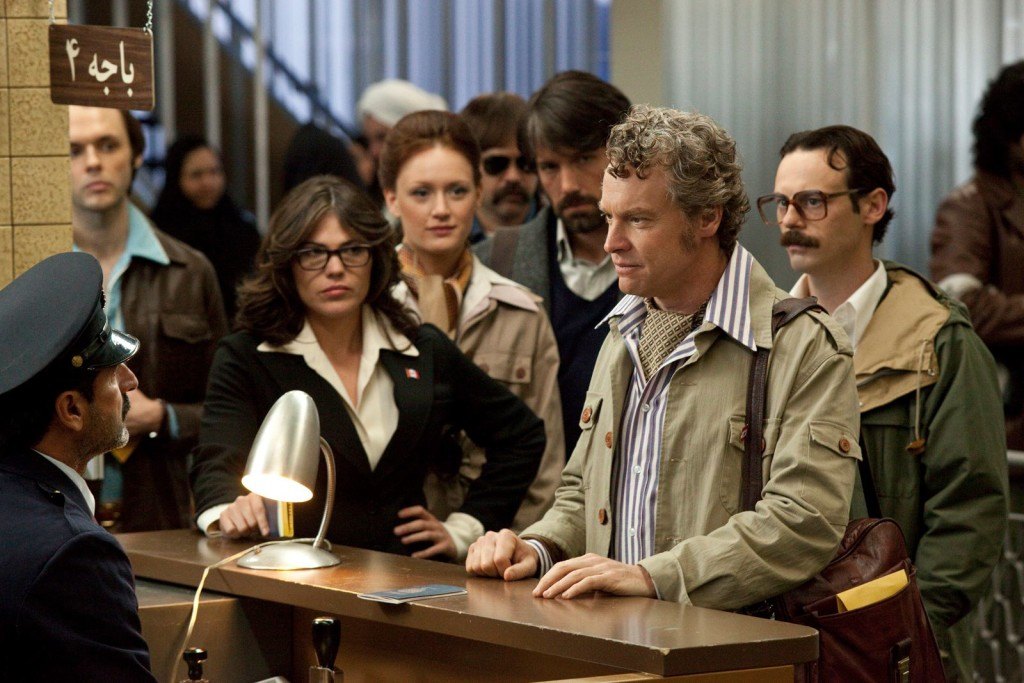
‘Argo’ brought to celluloid a relatively unknown story of the rescue of six US diplomats from Tehran during the 1979-1981 Iran hostage crisis. It is a fine film, but in the “Historical Accuracy” department, it fails on two major counts – glorification of America while downplaying the support given in the operation by other countries and exaggeration of the danger that the group faced during events preceding their escape from the country. In reality, the Canadian government performed 90% of the rescue operation while the film’s protagonist Tony Mendez was only n Tehran for a day and a half. It is also shown that the diplomats are turned away by the UK and New Zealand embassies, while in reality the two embassies assisted the operation, even taking huge risks at times. Additionally, the continuous arc of danger always looming on the people involved is just the exploitation of artistic license. In reality, the diplomats were never stopped or dramatically chased by guards while boarding their flight. They never actually faced imminent danger. Nevertheless, its intriguing central theme, vivid detail and finely wrought characters deem ‘Argo’ worth a glance. They just don’t deem it worthy of a history lesson.
Read More: Best French New Wave Films of All Time
4. Gladiator (2000)
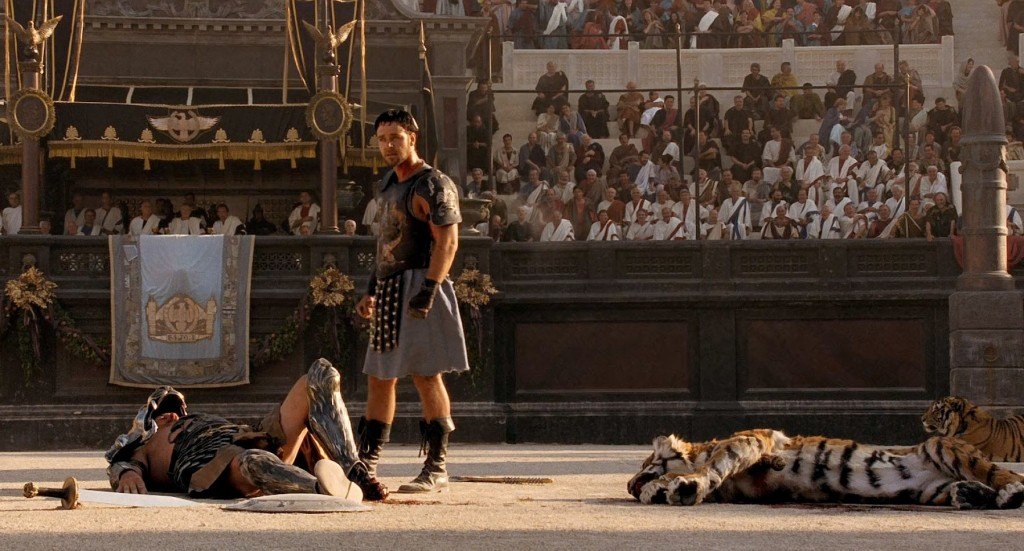
“Father to a murdered son. Husband to a murdered wife. And I will have my vengeance, in this life or the next.” When an inspiring Russel Crowe delivers these words in ‘Gladiator’, one can almost imagine his character Maximus Decimus Meridius speaking them almost 2000 years ago at the Colosseum. Sadly, that never happened, since Maximus is fictional. Also, the evil king Commodus played with wicked gusto by Joaquin Phoenix, was actually not evil, nor did he murder his father. Also, Commodus ruled over Rome for 12 years unlike the short while shown in the movie. He did engage in show combat, but wasn’t killed in the arena. Instead, he was strangled in the bathroom by his fellow wrestler and lover Narcissus (Why didn’t they make a movie on this?). Further, the death of Commodus actually brought chaos and Civil War in Rome as opposed to the calm shown in the film. At least one historical advisor is said to have resigned from the film due to these changes. Another asked not to be mentioned in the credits. The last two lines alone earn this movie a respectable spot here!
Read More: Best Mother’s Day Movies of All Time
3. 300 (2006)
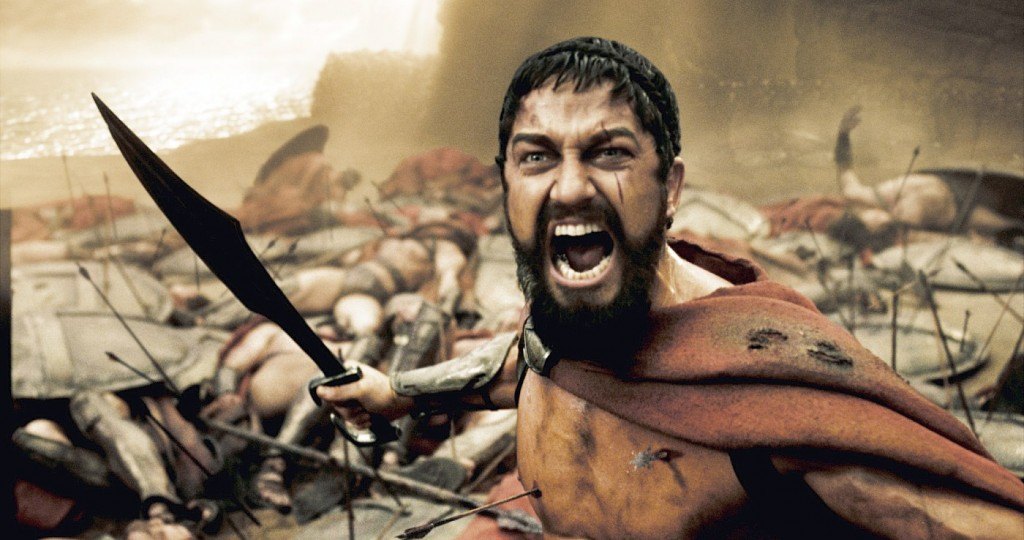
Zac Snyder, or as I like to call him, “The King of SloMos and Dark Palettes” burst into the mainstream with this visually stunning masterpiece which combined history and fantasy, the scales tipping heavily towards the latter. The film is based on a graphic novel based on the battle of Thermopylae, one of the greatest last stands in history. While it gets most of its plot points right, it is the characterisation where Snyder throws caution to the wind. Without any historical basis, the Persians are antagonised and mostly shown either as grotesque monsters or bejewelled fat dudes, their king Xerxes is shown as effeminate and the traitor Ephialtes is shown as a cripple. Even the animals are free from the petty rules of anthropology. Similarly, the Spartans have been glorified by showing them fighting without armour (Sorry fans, but they wore more than a loincloth and a cape. Much more) and ignoring their traditions of slavery and pederasty (Google it. Interesting info I assure you). Interestingly, the chilling ritual of a boy’s passage was actually conducted by killing a slave instead of a wolf as shown in the film. But hell, who cares! That long tracking shot of Leonidas slaying one man after another for a whole minute was awesome!
Read More: Best Slow Cinema Movies of All Time
2. Braveheart (1995)
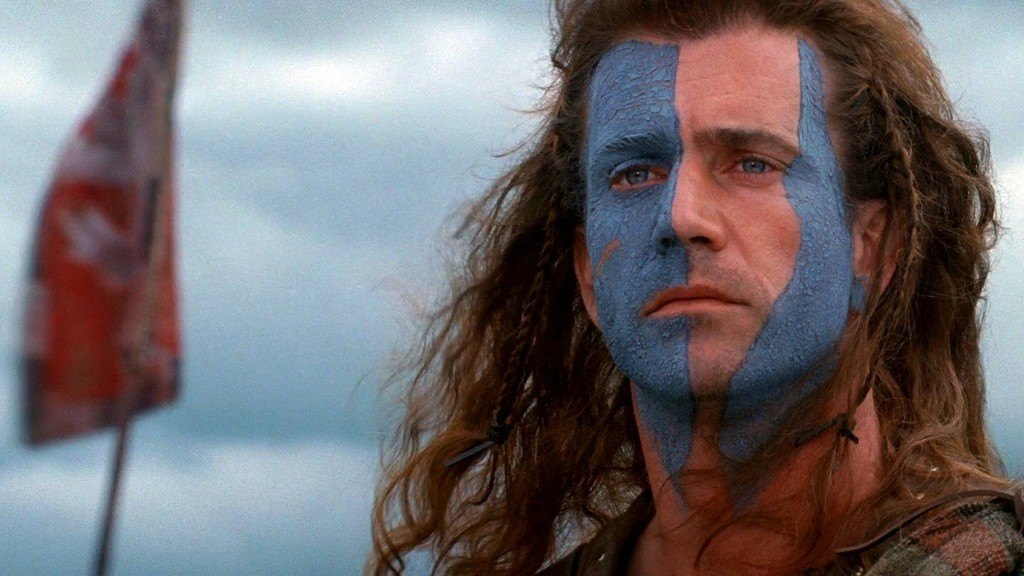
‘Braveheart’ is considered one of the most epic films of all time. Sadly, it is also considered one of the most historically inaccurate ones. The film sacrifices almost all accuracy in a quest to create a thrilling adventure. Discussion of all the fallacies in ‘Braveheart’ would be a juicy topic for a full-length article of its own. Some aspects appear earlier than they actually appear in history (like kilts), some way too late (like faces painted with woad). The film is so inaccurate that its source material, Blind Harry’s 15th century epic poem The Acts and Deeds of Sir William Wallace, Knight of Elderslie, has been deemed historically baseless, and the film has some fictional events which aren’t even mentioned in the poem or anywhere else in history. Even the title “Braveheart” in Scottish lore is attributed to Robert the Bruce, and not William Wallace.The only reason ‘Braveheart misses out on the top spot in this list is due to the extraordinary level of madness depicted in the numero uno entry.
Read More: Best Drama Romance Movies of All Time
1. 10,000 BC (2008)
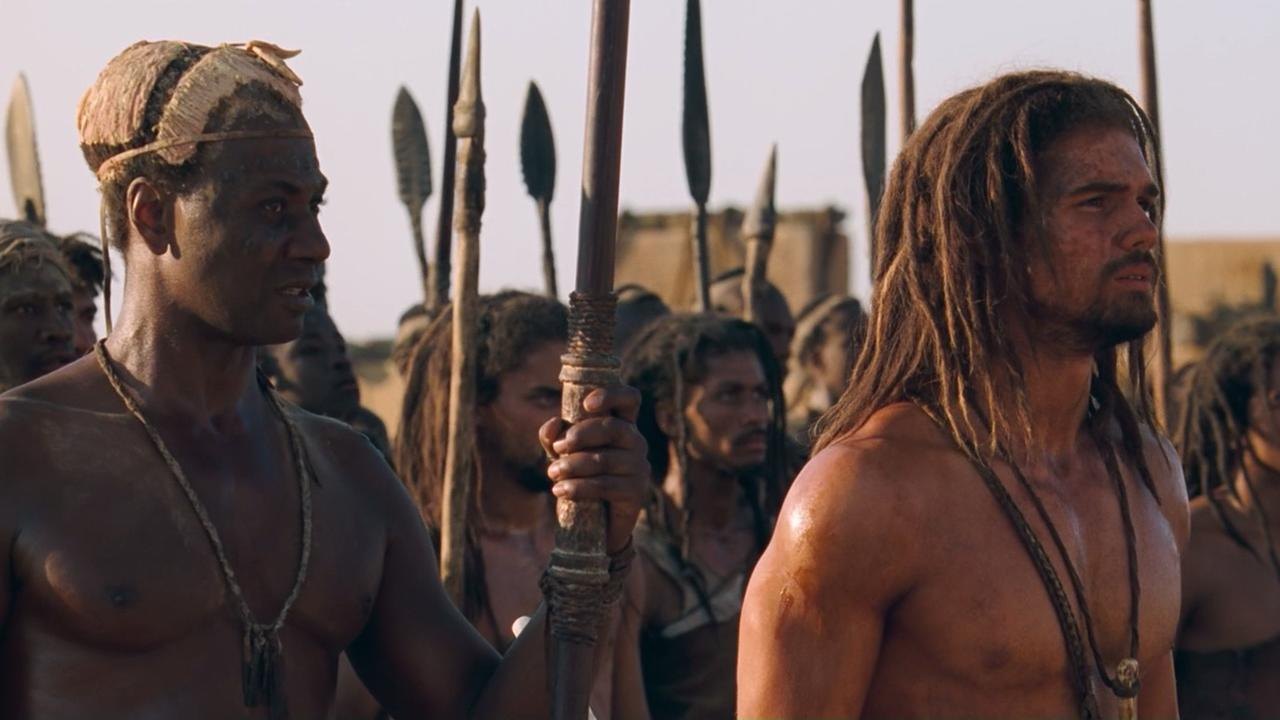
Aah. Saved the worst for the last. While also being horrendously inaccurate, this is, by a landslide, the worst film on our list. To be fair, it wouldn’t have improved much even if it had gotten its history right. This Roland Emmerich-directed prehistoric epic follows D’Leh, a young mammoth hunter, though his journey to ensure the safety of his tribe. And journey he does. Across millenia! In ‘10,000 BC’, you’ve got Egyptian pyramids being built using woolly mammoths. I mean, it’s the goddamn ice age, and then our main character walks over a hill and suddenly he’s in the Nile Valley of 2,000 BC! And these anachronistic Egyptians from the ice age have got ships, horseback riding, and Steel. Yep. Steel! In a nutshell, 10,000 BC is what you get if you put woollen mammoths in a 2,000 BC setting. This straight up goes over the edge of creative liberty into shooting something because you have a decent CGI guy. My biggest fear is that some unwary history teacher will pick this film and show it to unwary kids.
Read More: Best Steven Spielberg Movies

